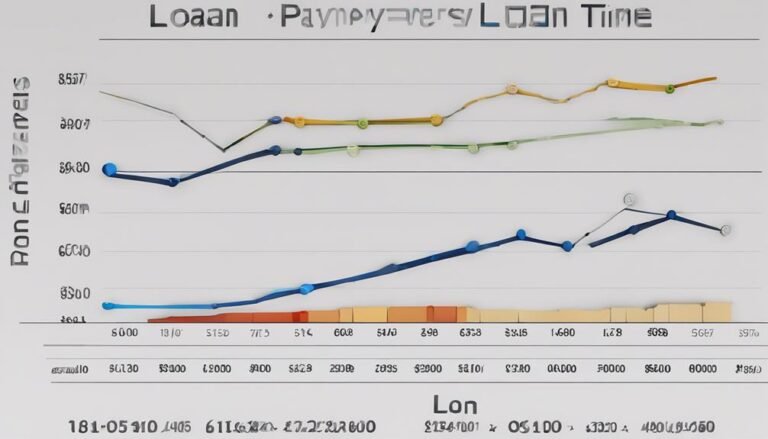Eviction: Definition and How It Works Under the Law
Eviction, in legal terms, is the formal removal of a tenant by a landlord, typically due to issues like nonpayment of rent or violating the rental agreement. It is governed by specific laws and involves procedures like serving eviction notices and providing reasons for eviction within a set timeframe. Understanding tenant rights and legal responsibilities is essential to successfully managing the eviction process. For a thorough understanding of eviction procedures, including how they work and the various considerations involved, further exploration into the eviction process and related laws is recommended.
Key Takeaways
- Eviction is the legal removal of a tenant by a landlord for specific reasons.
- Governed by eviction laws, it requires due process and written notices.
- Reasons include nonpayment of rent, breaches of lease, or illegal activities.
- Notices must state reason, compliance timeframe, and tenant's right to contest.
- Judges decide on eviction cases based on evidence and legal considerations.
Eviction Overview
The eviction process involves guaranteeing the legal removal of a tenant by a landlord due to nonpayment of rent, breaches of the rental agreement, or other lawful causes, as governed by specific eviction laws established at the state, county, and municipal levels.
Landlords must follow due process, which typically includes providing tenants with a written eviction notice outlining the reason for eviction and the timeframe for compliance or vacating the premises.
Tenant rights during the eviction process vary depending on the jurisdiction and the specific circumstances surrounding the eviction.
It is crucial for both landlords and tenants to understand their rights and obligations under the relevant eviction laws to ensure a fair and lawful eviction process is followed.
Legal Grounds for Eviction
Various statutory and contractual provisions define specific legal grounds for eviction in the United States, outlining permissible reasons for landlords to initiate the process of removing tenants from their rented premises. These legal grounds for eviction serve as a framework to safeguard both landlord and tenant rights, ensuring important and lawful procedures are followed.
Understanding these grounds is vital for both parties to prevent unnecessary conflicts and protect their interests. Here are some key points related to legal grounds for eviction:
- Nonpayment of rent
- Breach of lease agreement
- Property damage beyond normal wear and tear
- Illegal activities conducted on the premises
- Violation of lease terms endangering the safety of others
Eviction Notice Requirements
Understanding the legal requirements for serving an eviction notice is essential in ensuring a structured and compliant initiation of eviction proceedings. Landlords must adhere to specific guidelines when issuing eviction notices. These notices typically need to include the reason for eviction, the timeframe for the tenant to respond or vacate the premises, and information on the tenant's rights to contest the eviction.
Failure to meet these requirements could result in the eviction notice being deemed invalid, leading to potential delays in the eviction process. It is vital for landlords to understand and fulfill their responsibilities in serving eviction notices while also respecting the tenant's rights throughout the proceedings. By following these guidelines, both parties can navigate the eviction process within the bounds of the law.
Eviction Process in Court
In court eviction proceedings, judges meticulously evaluate evidence presented to make informed decisions regarding tenant removal and potential damages. During court hearings, the following emotional aspects come into play:
- Fear and uncertainty gripping tenants facing potential displacement.
- Stress and anxiety for landlords seeking resolution and property restoration.
- Empathy from judges towards families experiencing housing instability.
- Frustration and helplessness felt by tenants unable to present compelling evidence.
- Relief and closure for parties involved when a fair decision is reached.
Eviction During COVID-19
During the COVID-19 pandemic, the eviction landscape underwent significant changes due to governmental interventions and public health concerns. Eviction challenges arose as tenants faced financial hardships, leading to difficulties in meeting rent obligations.
To address these challenges, various tenant protections were implemented, such as eviction moratoriums, rent relief programs, and legal aid services. These measures aimed to prevent mass evictions and homelessness during a time of economic uncertainty.
Landlords were also affected by these changes, with some facing financial strains due to delayed or missed rental payments. The delicate balance between landlord rights and tenant protections became a focal point in eviction proceedings, requiring a nuanced approach to navigate the complexities of the situation.
Impact of Eviction on Landlords
The impact of evictions on landlords' financial stability and property management responsibilities is a critical aspect of the eviction process.
- Financial consequences:
Evictions can lead to loss of rental income, legal fees, and property damage, impacting the landlord's cash flow.
- Property maintenance:
Landlords may face additional costs for repairs, cleaning, and potential renovations after an eviction.
- Tenant screening:
Past evictions can make it harder to attract reliable tenants and may increase vacancies.
- Legal rights:
Landlords have the right to evict non-compliant tenants following proper legal procedures.
- Emotional toll:
Dealing with evictions can be stressful and time-consuming for landlords, affecting their overall well-being.
Tenant Resources and Assistance
Given the complex legal landscape surrounding evictions and the potential challenges faced by both landlords and tenants, understanding the available tenant resources and assistance is essential.
Tenants experiencing difficulties such as job loss, unforeseen circumstances, or financial hardship leading to eviction can seek community support and financial aid. Various resources are accessible through county governments, state provisions, and specific financial aid sources.
Seeking legal advice is vital in understanding eviction proceedings and understanding available protections. Organizations like Eviction Lab, Cornell Law School Legal Information Institute, EveryCRSRreport, Urban Institute, and the CDC offer reliable information on eviction laws and tenant rights.
It is important for tenants to be aware of their options and rights to access the necessary assistance during challenging times.
Conclusion
To sum up, it is crucial to remember that 'justice delayed is justice denied' in the domain of eviction law.
Understanding the legal grounds, notice requirements, court processes, and potential impacts on both landlords and tenants is vital for successfully managing this intricate legal procedure.
With the changing landscape of eviction regulations, staying informed and seeking assistance when needed can help alleviate the challenges and guarantee fair treatment for all parties involved.







